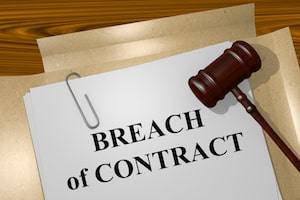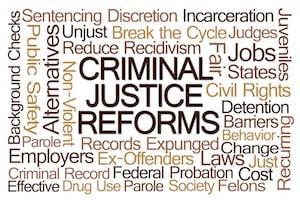Recent Blog Posts
Pursuing a Civil Lawsuit for Breach of Contract
 When you agree to a contract, you expect that it will be honored. You will likely also take future actions based on the presumption that the agreement will be kept. When a party breaches a contract, the other parties to that contract have legal recourse and can bring a civil lawsuit.
When you agree to a contract, you expect that it will be honored. You will likely also take future actions based on the presumption that the agreement will be kept. When a party breaches a contract, the other parties to that contract have legal recourse and can bring a civil lawsuit.
Identifying a Breach of Contract
The first step in pursuing a civil lawsuit for breach of contract is identifying that there has been a breach. A breach can occur one of three ways:
- Failing to perform as promised.
- Making it impossible for the other party to perform.
- Repudiating the contract (communicating an intent not to perform).
Breach of Contract Damages
Next, you must determine what types of damages are available. Sometimes, the contract itself will set damages in case of a breach. These types of damages are called liquidated damages. If there is no such provision, or if such a provision is determined by the court to be unenforceable, the court will consider two other major types of damages.
Steps to Take After a Slip and Fall Accident
 Slipping and falling can lead to serious injuries that may require extensive medical treatment. If you have been hurt in a slip and fall accident, there are things you can do to strengthen your case and increase your chances of recovering compensation.
Slipping and falling can lead to serious injuries that may require extensive medical treatment. If you have been hurt in a slip and fall accident, there are things you can do to strengthen your case and increase your chances of recovering compensation.
Demonstrating Liability
One of the main hurdles in a slip and fall case is proving that the business or property owner knew of the condition that caused your fall and did not take the proper steps to correct it. Alternately, you can satisfy this requirement by showing that any reasonable business or property owner would have known about the condition, because it was present for a substantial period of time before you fell.
Following an injury, you should take the following steps:
- Seek all medical help you need. In the aftermath of a fall, your health comes first. You should receive the proper medical treatment and pursue any surgeries or therapies your doctor believes will help you return to the mobility you had prior to the accident.
Licensing Issues for Anesthesiologists
 Wisconsin recognizes that anesthesiologists perform important work, and that is why the state requires that anesthesiologists maintain a professional license. Anesthesiologists and all other doctors are governed by the Wisconsin Medical Examining Board, a division of the Department of Safety and Professional Services, and those who are facing potential discipline to their license should be sure to understand the procedures that will be followed and their options for defense.
Wisconsin recognizes that anesthesiologists perform important work, and that is why the state requires that anesthesiologists maintain a professional license. Anesthesiologists and all other doctors are governed by the Wisconsin Medical Examining Board, a division of the Department of Safety and Professional Services, and those who are facing potential discipline to their license should be sure to understand the procedures that will be followed and their options for defense.
Complaints, Investigations, and Discipline
A medical license can be lost in several ways, one of which occurs when a complaint is lodged against an anesthesiologist with the Wisconsin Department of Safety and Professional Services. On average, about 500 complaints are received each year against doctors. Of these 500, about half are from patients or their family members. Other complaints are lodged by health care workers. Additionally, malpractice determinations or hospital actions reported through a national data bank make up a share of the complaints.
Licensing Issues for Physical Therapists
 Wisconsin physical therapists know that their license to practice must be closely guarded. Losing or having any restrictions on your license will have a negative impact on your business and your reputation in the community.
Wisconsin physical therapists know that their license to practice must be closely guarded. Losing or having any restrictions on your license will have a negative impact on your business and your reputation in the community.
Licensing issues can come up at any point when one is applying for a license or after a license has been issued. A physical therapist’s license can be threatened by a complaint filed by a patient or other person. In these instances, the Wisconsin Physical Therapy Examining Board may send out an investigator to gather more information.
An investigator will attempt to speak with the physical therapist whose license is at issue. While it is not recommended, some physical therapists will not consult an attorney in advance of this meeting or bring an attorney to the interview.
Beware of These Dangers Posed by Streetcars in Milwaukee
 The United States is in the midst of a streetcar resurgence. In the last five years, at least 10 major U.S. cities, including Milwaukee, have added streetcar lines. While many people are pleased about the additional public transit options and think streetcars benefit the community, some believe that this form of transportation adds additional dangers to city streets. Streetcar accidents are certain to occur, especially when a streetcar line opens in a new city.
The United States is in the midst of a streetcar resurgence. In the last five years, at least 10 major U.S. cities, including Milwaukee, have added streetcar lines. While many people are pleased about the additional public transit options and think streetcars benefit the community, some believe that this form of transportation adds additional dangers to city streets. Streetcar accidents are certain to occur, especially when a streetcar line opens in a new city.
The Streetcar Renaissance
Milwaukee’s streetcar line, The Hop, will open in November 2018, and the system is currently undergoing testing in parts of the city. The new route is two miles long, and there are plans to expand in the coming years. Unfortunately, accidents involving the streetcars are already being reported.
Healthcare Licensing Issues for Pharmacists
 In order to practice as a pharmacist in Wisconsin, you must be properly licensed. Professional licenses ensure that pharmacists have a complete education, remain up to date on medical information, are providing adequate care to patients, and are known to the state. Pharmacists should be aware of issues that could affect their license and their ability to continue practicing pharmacy.
In order to practice as a pharmacist in Wisconsin, you must be properly licensed. Professional licenses ensure that pharmacists have a complete education, remain up to date on medical information, are providing adequate care to patients, and are known to the state. Pharmacists should be aware of issues that could affect their license and their ability to continue practicing pharmacy.
Pharmacist License Denial
There are a variety of ways that a pharmacist’s license can be put in danger by the State of Wisconsin Pharmacy Examining Board, which is a division of the Wisconsin Department of Safety and Professional Services. A license application may be denied, or a license may not be renewed because of a missed deadline, an alleged misrepresentation on the renewal application, or a failure to complete continuing education.
Licensing Issues for Optometrists
 Optometrists and prospective optometrists are always at risk for licensing issues. Optometry licensing problems can come up in a number of ways and at a number of points in one’s schooling and career.
Optometrists and prospective optometrists are always at risk for licensing issues. Optometry licensing problems can come up in a number of ways and at a number of points in one’s schooling and career.
Optometry License Applicants
Before someone is even given an optometrist license, certain issues may arise. Under Wisconsin law, a license applicant must meet several criteria, including graduating from an accredited optometry school, passing the board examination, and proving that he or she does not have an arrest or conviction record.
There are exceptions that may be argued regarding one’s past criminal record and the effect it could have on being eligible for an optometry license. Many license applicants find that this is one area where an attorney can be helpful. An attorney may also be helpful in the application process if there are any irregularities or issues during the exam, such as disability accommodations or allegations of cheating.
Will the Upcoming Election Result in Prison Reform or More of the Same?
 By Ray Dall’Osto
By Ray Dall’Osto
After laboring in the criminal justice field in Wisconsin for forty years, what have I learned? First, that the state and federal prison populations have grown from 250,000 to 1,500,000 in that time period, yet overall, crime rates are substantially down. Of the 186,000 federal prison inmates in 2010, 98,000 were in prison for drug offenses. When I first started to practice, there were less than 4,000 prison inmates in Wisconsin, and now that number is consistently over 20,000. While crime rates have gone down, the United States remains the world leader in rates of incarceration. What is wrong with this picture? How have we as a society ended up here? What can be done?
Harsh sentencing laws such as mandatory minimums, sharp increases in felony sentence structures, and judges handing down longer prison sentences, combined with the elimination of parole and early release programs for good behavior and successful treatment completion, has created this over-incarceration morass.
Licensing Issues for Dentists
 For dentists, a top concern is receiving their professional dentistry license and then retaining that license. Two issues that dentists may face with respect to licensing are license application and denial, as well as disciplinary matters.
For dentists, a top concern is receiving their professional dentistry license and then retaining that license. Two issues that dentists may face with respect to licensing are license application and denial, as well as disciplinary matters.
License Application and Denial
Wisconsin strictly enforces the requirements set forth by law for dentist license applications. Applicants must pass the board exam and show proof of graduation from an accredited dental school. In addition, applicants must disclose certain criminal convictions if they have them. Under Wisconsin law, an applicant must report a conviction of any felony, misdemeanor, or other offense for which the circumstances substantially relate to the practice of dentistry.
The Wisconsin Department of Safety and Professional Services recently began allowing applicants to apply for a predetermination of whether an individual will be disqualified from obtaining a license due to his or her conviction record. If you have a conviction and wish to utilize this service, an attorney can help you decide if a conviction needs to be reported and how best to present the conviction to the department.
Licensing Issues for Chiropractors
 As a chiropractor, there is nothing more important than your professional license. Unfortunately, there are numerous ways that your chiropractor’s license can be suspended or revoked.
As a chiropractor, there is nothing more important than your professional license. Unfortunately, there are numerous ways that your chiropractor’s license can be suspended or revoked.
Anything that jeopardizes your chiropractic license should be treated seriously and directly. In fact, there are often additional penalties that you will face if you ignore correspondence from the Wisconsin Chiropractic Examining Board or another agency.
Licensing issues a chiropractor may face include:
- Licensing application questions. If you are concerned that your license application may be denied, an attorney can advise you on what information you need to disclose and what steps you can take to minimize the chances of a denial. Concealing certain facts can result in immediate denial.







